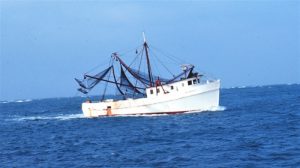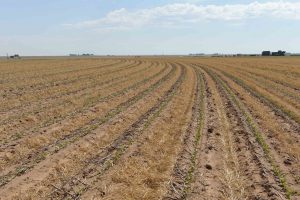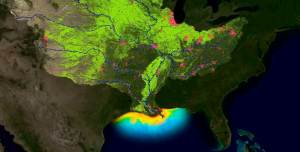
With a record setting dead zone predicted this summer, Illinois Public Media (aka WILL Radio) has highlighted how Midwest pollution effects the ecology of the northern Gulf of Mexico. First-hand accounts from a shrimp fisherman, environmentalist, corn farmer, and NCCOS’s David Kidwell tell the story.
In a July 9, 2019 radio feature, a Louisiana shrimp fisherman tells a real-life account of the toll hypoxia has on his livelihood. Also, an environmentalist talks about urban sources of pollution from the upper Midwest, a corn farmer talks about techniques to control agricultural runoff, and NCCOS’ David Kidwell, Director of the NCCOS Competitive Research Program, discusses the dead zone’s history, how fertilizer runoff causes the dead zone, and what NOAA is doing to help solve the problem.
Source: The 21st – How Midwest Pollution Ends Up In The Gulf with Niala Boohoo, Illinois Public Media, July 9, 2019.
For more information, contact David Kidwell.


